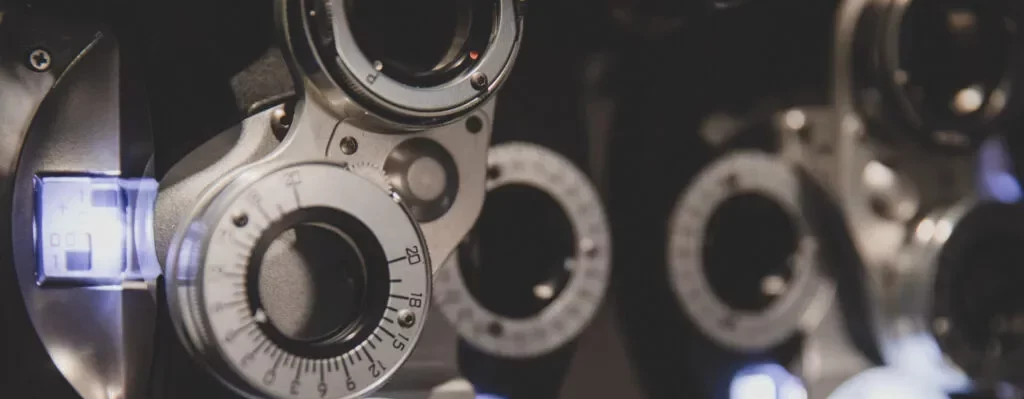PROCEDURES
KAMRA CORNEAL INLAYS
KAMRA Corneal Inlays performed at Durrie Vision are a long-lasting solution for nearsighted patients. The KAMRA Corneal Inlay is smaller and thinner than a contact lens, and is implanted in a flap within the cornea of only one eye. It can be placed on its own, along with or after vision correction surgery.
For Treating
Farsightedness
For Ages
50 – 59

Are KAMRA Corneal Inlays Right for You?
KAMRA Corneal Inlays is an ideal solution for patients in their 40s when they begin to notice a decrease in their near vision – and a greater dependency on reading glasses or bifocals – due to the natural aging of the eyes’ internal lenses. Durrie Vision’s free, in-depth Advanced Ocular Analysis (AOA) is the first step in determining the best vision correction procedure for you.
Step 1
Examine the health of your eye
A routine eye exam or LASIK screening may ignore critical details. For this reason, Durrie Vision developed the Advanced Ocular Analysis (AOA). Featuring the most advanced combination of diagnostic testing available today, the AOA uses cutting-edge technologies to provide a three-dimensional visualization and analysis of the entire ocular system.
Step 2
Meet with a refractive surgeon
During the AOA, you will meet with one of our experienced refractive surgeons directly to discuss your results along with their recommendations. This is a unique component of the experience that provides an additional level of comfort and trust.
Step 3
Recommend a treatment plan
After your exam, we’ll share with you an in-depth analysis of your eyes, taking all the time necessary to explain what the evaluation revealed. You will leave with a comprehensive report of everything we discussed along with any recommendations for treatment, cost, financing, and recovery time.

KAMRA Corneal Inlays: What to Expect
On the day of the procedure, patients can expect to be in our office for only 90 minutes! The procedure is done one eye at a time, typically at least one week apart.
Step 1
Pre-op Prep
We run several tests confirming our data on your eyes. You can have a mild sedative if you’d like, and you’ll receive numbing eye drops. A small, gentle eyelid holder is placed between the eyelids so you don’t blink during the procedure.
Step 2
Prep the cornea
Using a laser, the surgeon creates a small flap within the cornea.
Step 3
Change the cornea
The inlay is inserted and positioned over the pupil and we administer eye drops.
Recovery
KAMRA Corneal Inlays Recovery
The corneal flap heals quickly with most patients being able to return to work and normal activities as early as the next day. Typically patients gain several lines of reading vision within their first week and most will experience the full benefits of the procedure within one month of it. Our care team will provide eye drop instructions or restrictions for the days or weeks following the procedure.
Benefits of KAMRA Corneal Inlay
Hassle-free vision
Imagine going to sleep, waking up, swimming, running, reading or doing any of your daily activities without contacts or glasses. Laser vision correction makes that possible.
End icky eyes
Laser vision correction is 5x safer than wearing contacts, because they can cause serious eye infections.
Save money
While there’s an upfront cost to vision correction procedures, over time you can actually save money when comparing that cost to the lifetime price of contacts and/or glasses. Check out our customizable calculator to figure your savings.
Love your vision finally
The latest research indicates LASIK surgery has a 99% success rate in achieving 20/40 vision or better and a 90% success rate in achieving 20/20 vision or better!

LASIK
For nearsightedness, farsightedness, & astigmatism

Refractive Lens Exchange
For presbyopia, nearsightedness, farsightedness, & astigmatism

Refractive Cataract Surgery
For cataracts, presbyopia, nearsightedness, farsightedness, & astigmatism
